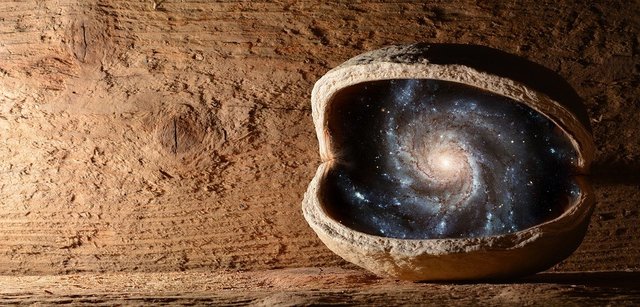
This is an unoriginal thought, but I can’t remember where I learned about the following argument. It’s been bouncing around my head for awhile, so if anyone could tell me where this argument came from it’d be appreciated.
The ontological argument for theism is supposed to prove God exists from the supposition that the concept of God includes not only the properties of being all-powerful, all-knowing, and all-good but the property of perfection itself.
That is, God, if He is anything at all, is the most perfect being that could possibly exist. Now here’s the work horse question of the traditional ontological argument: does the property of existence itself count amount the properties that a perfectly perfect being necessarily has?
Theists answer in the affirmative, since surely a God that exists is more perfect than a God that does not exist.
And since God is by definition the most perfect being possible, we can conclude that God exists because the most perfect being would perfectly have the property of existence .
“Not so fast!” says the atheist.
Consider this. One of God’s most impressive alleged feats was the creation of the universe, an event universally considered to be a big deal. But wouldn’t it be more impressive if God had managed the trick of creating the universe without existing at all?
Now that would be impressive! To make yourself vanish and in your place have a universe. Neat trick. A God who could do that seems more powerful than a God who couldn’t even manage to create a universe without existing.
When you think about it, it seems awfully easy to create the universe if you actually exist. But to do so from beyond the grave is very difficult. But if anyone could do it, it’s God alright.
Therefore, God does not exist
images: pixabay
Cross posted from my blog Minds and Brains
First of all, you're using Anselm's version of the argument. If you had done any research, you would have found that better versions have been developed. I think Plantinga's is best. It, by the way, does not assume existence is a property.
What you've done here seems to be taken directly from Dawkins' book.
The problem with it is that the Ontological Argument defines God as a Maximally Great Being. That is, the greatest possible being. A God who creates everything while not existing cannot be a Maximally Great Being, because he isn't a possible being.
(Also, I don't know why you talked about existence as a property, since this has not to do with your counter argument.)
Downvoting a post can decrease pending rewards and make it less visible. Common reasons:
Submit
Religion is hope (a false one) for poor people.
Downvoting a post can decrease pending rewards and make it less visible. Common reasons:
Submit
The notion of God was created on basis of search of an ultimate Authoritative figure, thus justifying unjustifiable social hierarchies and giving birth to a sacred, unquestionable bloodlines.
Monotheistic religions are directly responsible for most of the human suffering through ages. The bible itself is a strict invitation to accept a suffering as a prime basis for a fucking human condition.
The human condition is just that - human-fucking-condition. It should not depend on any mercy of master, that's called slavery - and a concept of god just abolishes an individual responsibility of direct exploitation, transferring the ownership of the soul to some imaginary authoritarian third party.
Not cool in my opinion.
Downvoting a post can decrease pending rewards and make it less visible. Common reasons:
Submit
Religion on a broad scale probably helped us trust and work with one another outside of our initial family, tribal and city groups.
In the smallest social circles, you knew to trust your family and your tribe.
As they grew, you knew to trust your city and perhaps your nation-state.
At some point, society became complex and warranted the need to trust merchants and travelers from other countries and far away lands. This became easier if you knew the guy was catholic/christian/etc. You could then assume a common set of moral values.
Now though, its a crutch we shouldn't need. People are people, most of them are good and trustworthy.
Downvoting a post can decrease pending rewards and make it less visible. Common reasons:
Submit
very good
Downvoting a post can decrease pending rewards and make it less visible. Common reasons:
Submit
Your posts aren't getting as much as they deserve. Do you know about deepthink?
I'm sure I've read arguments of that sort, and whether existence can be a property. Alvin Plantinga comes to mind. But I don't remember who came up with it first, or if your particular twist of it is original or not.
Downvoting a post can decrease pending rewards and make it less visible. Common reasons:
Submit
Very interesting. There is a sort of humor to the idea as well. To think that something that does not exist could create something into existence has a level of profound absurdity to it. Very cool
Downvoting a post can decrease pending rewards and make it less visible. Common reasons:
Submit
What is more perfect? An atomic bomb that exists, or a non existent one?
Downvoting a post can decrease pending rewards and make it less visible. Common reasons:
Submit